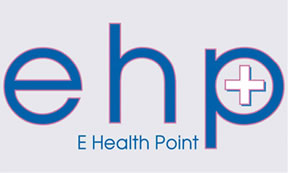On Friday, January 20, 2012, the Prescott-Joseph Center for Community Enhancement, Inc. (PJCCE), in partnership with the Alameda Boys & Girls Club and Alameda Head Start will host a special ribbon-cutting ceremony at the Alameda Boys & Girls Club, 1900 3rd Street in Alameda as it launches services of the PJCCE Breathmobile®, a 33ft pediatric mobile asthma clinic, in the City of Alameda. The press conference and ceremony will start at 10:00am and will include members of the Alameda School Board, City elected officials, Alameda Head Start representatives, Alameda County representatives, and the Bay Area Air Quality Management District. Light refreshments will be provided.

Event: Breathmobile ® Press Conference & Ribbon Cutting
Friday, January 20, 2012
10:00am – 10:30am
Alameda Boys & Girls Club
1900 3rd Street, Alameda
Asthma rates for children in the City of Alameda, and particularly at Alameda Point are high in the 0-5 age group. Many families do not have insurance to access regular asthma health care,†says Washington Burns, MD, Executive Director of the Breathmobile. “We are happy to be partnering with the Alameda Head Start and Alameda Boys and Girls Club.†Dr. Burns was contacted in 2011 by Daniel Javes of Alameda Head Start, after Javes concerned about asthma rates in Head Start children, had heard about the work the Breathmobile was doing at schools in Oakland. Javes contacted Dr. Burns and said that the Boys and Girls Club would be a perfect site in Alameda to see children with asthma. Javes suggested he should contact George Phillips, Executive Director of the Alameda Boys & Girls Club, which he did. “The Breathmobile fits right in with our other health care initiatives like our dental clinic.†says George Phillips, the Club’s Executive Director, “It allows us to offer convenient access to services they might not otherwise use and will help us realize our goal of instilling healthy lifestyle habits in the children of our community.â€
The Breathmobile®, the first of its kind in Northern California is owned and operated by PJCCE and is a 33 ft. Winnebago RV outfitted with the latest equipment to function as a pediatric mobile asthma clinic. Inside the van, there are an intake station, a small waiting space, a testing area for vital signs including Oximetry, allergen skin testing and spirometry, and an exam room. On board are two computer systems, the first has a health risk assessment system for asthma, and a screening module for pre-diabetes, and the other system is a state of the art electronic medical records system called “AsmaTrax.†Asthma and allergy specialists on-board include Pediatric Allergists, Registered Nurses, and Respiratory Therapists. A video system is also on board to play educational videos and CDs. Services are provided in English and Spanish, and are available at no cost to children and families. The Breathmobile® will also provide services at the Matheson Head Start in Alameda Point.
The Breathmobile’s® mission is to reduce the effects of asthma among economically challenged families by providing a sustainable, accessible asthma management program that will focus on regular preventive care, thereby shifting families away from acute episodic and emergency care.
There are other Breathmobiles® operating throughout the US, including Los Angeles, Orange County, Chicago, Baltimore, University of Alabama, and Phoenix, Arizona. All of these units form a national collaborative organization linked by a computer system located at USC to study and improve the effective treatment and management of asthma. Collaborative studies of Breathmobile® units in Chicago, Baltimore, Los Angeles and Orange counties in Southern California show a dramatic 73% reduction in Emergency Room visits and hospitalizations of asthma children being served by their Breathmobiles®. In its two years of operation, the PJC Breathmobile® has shown significant decrease in emergency room visits from 122 to 2, asthmarelated hospitalizations from 63 to 1, and school absences from 351 days to 17.
“There are so many diseases that we cannot control, but asthma is a controllable disease,“ says Dr. Burns, “By having the Breathmobile®, we can drastically reduce emergency room visits, hospitalizations, school absenteeism, reduce medical costs, and decrease morbidity and mortality of asthma by teaching patients how to control their children’s asthma. We are also increasing children’s academic performance.â€
Founded in 1995, the Prescott Joseph Center for Community Enhancement, Inc. works to enhance the wellbeing of individuals and families in the West Oakland community through a broad range of wellness, education and cultural programs, and resources delivered in a safe, welcoming, respectful environment. Prescott Joseph Center partners with organizations and agencies to deliver services and referrals within the community. Located in the Prescott district, also called the Lower Bottom,†of West Oakland it is a center for community services, education, culture and development. Prescott Joseph Center for Community Enhancement has a three-fold mission to: promote the individual self-esteem of citizens in the community through education, skill training and cultural programs, thus supporting healthy families and economic self-sufficiency; promote the on-going renewal of community spirit among West Oakland residents and to organize and promote community activities that facilitate economic, social and cultural development within West Oakland community.
For more information, about the Breathmobile ® of Northern California, please contact Washington Burns, Executive Director at 510-290-1476 or e-mail:drburns@prescottjoseph.org. You may also visit the Breathmobile® website at:www.breathmobile-nca.org.
Via EPR Network
More Healthcare press releases






